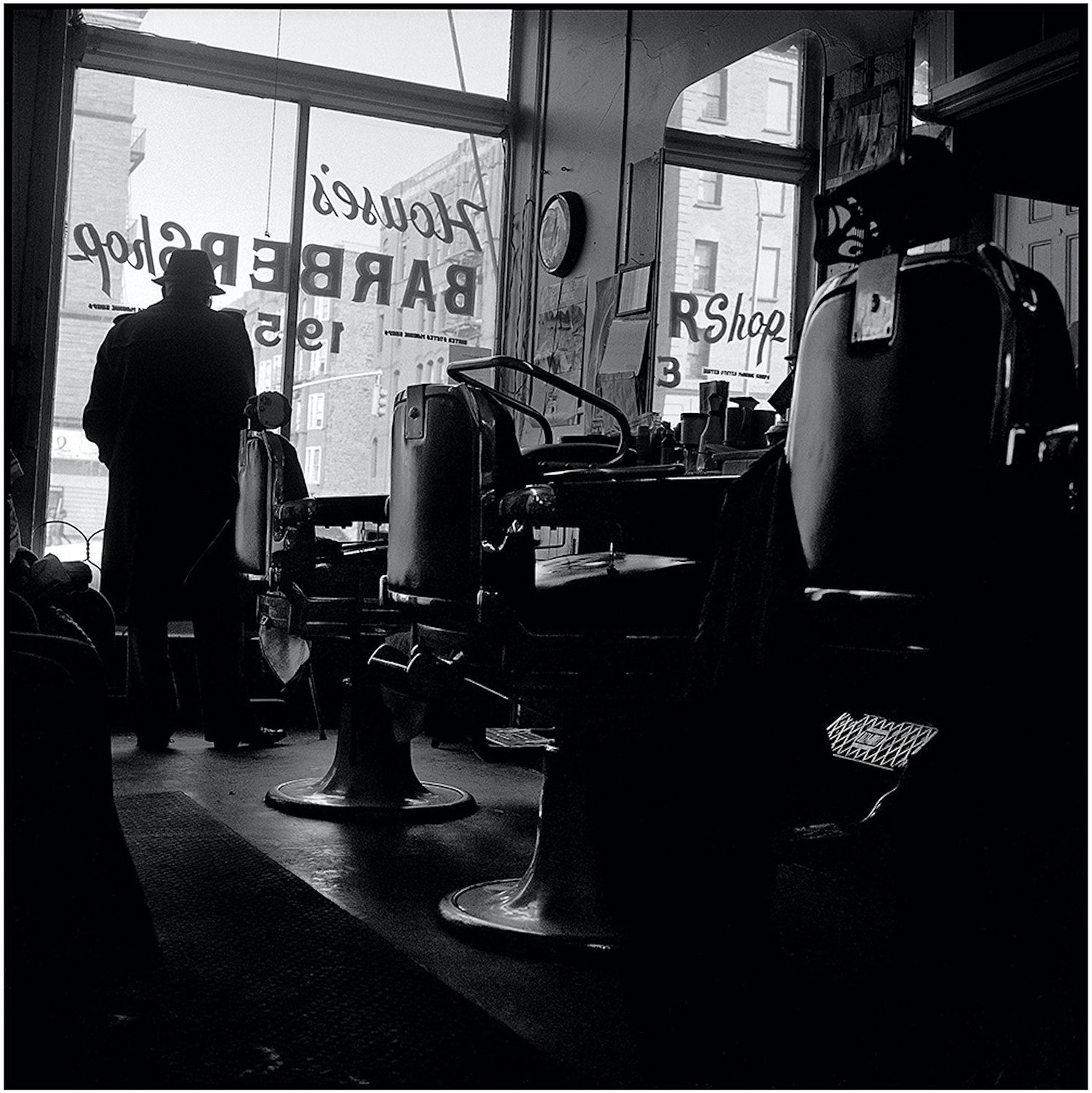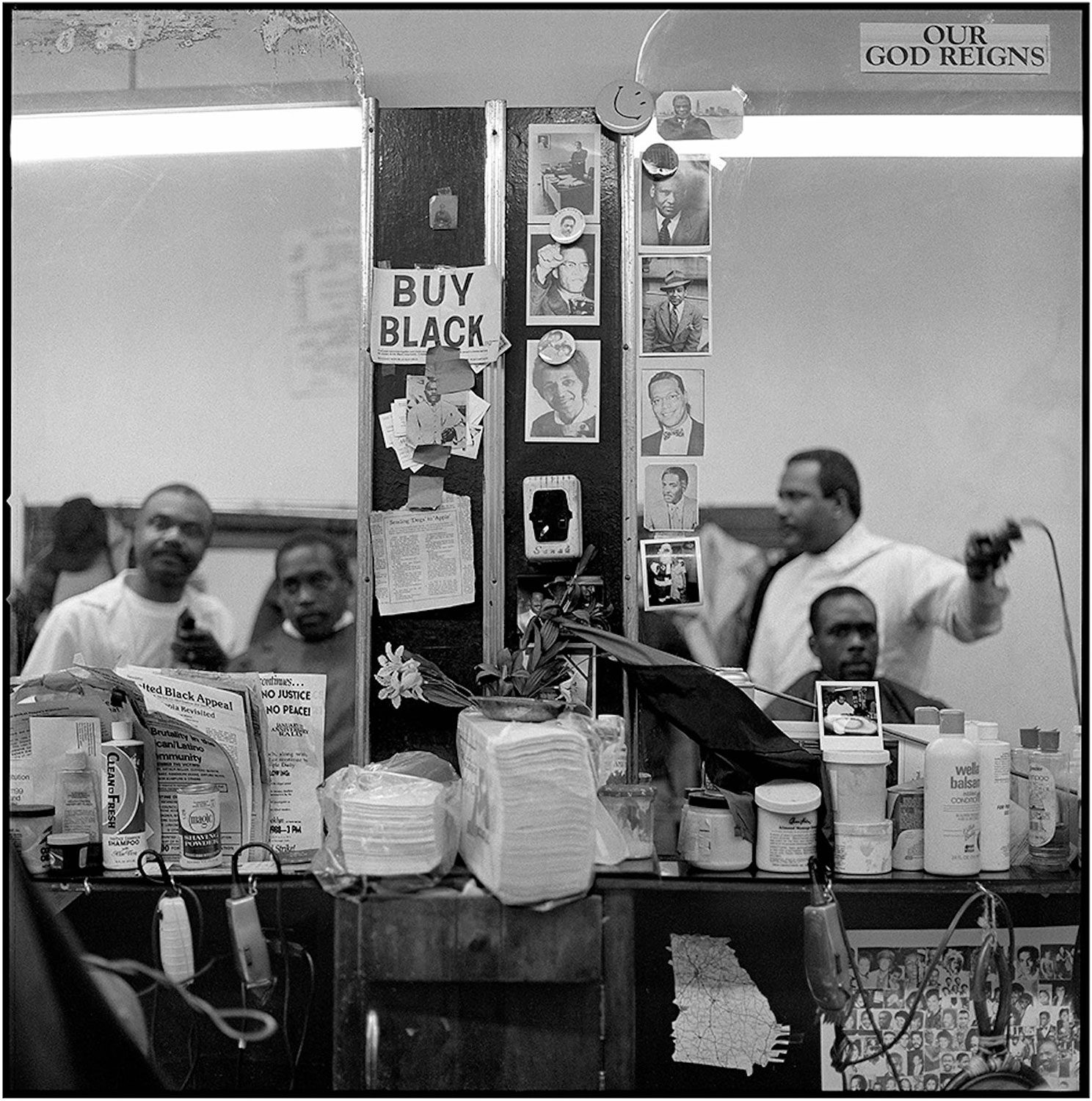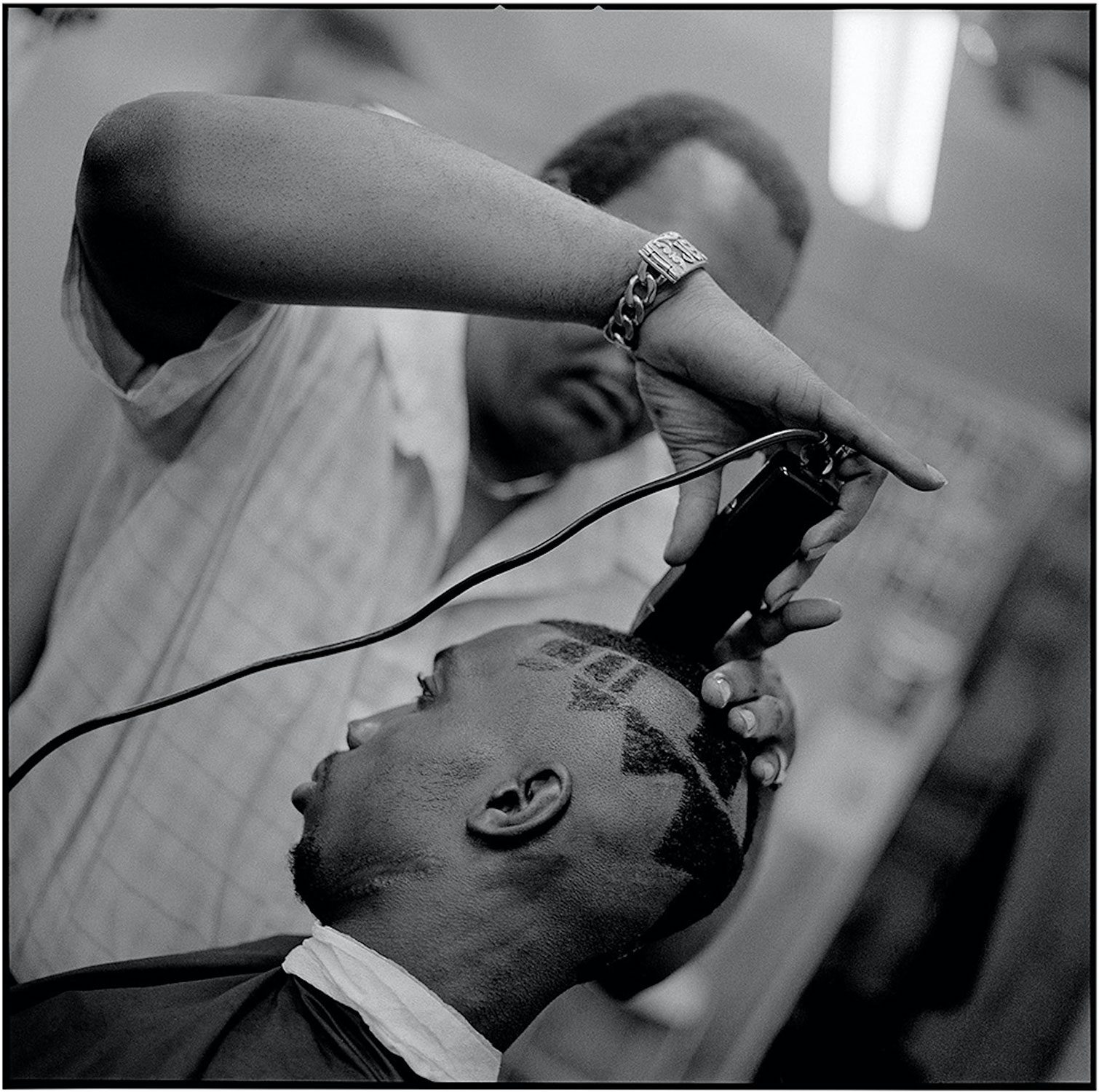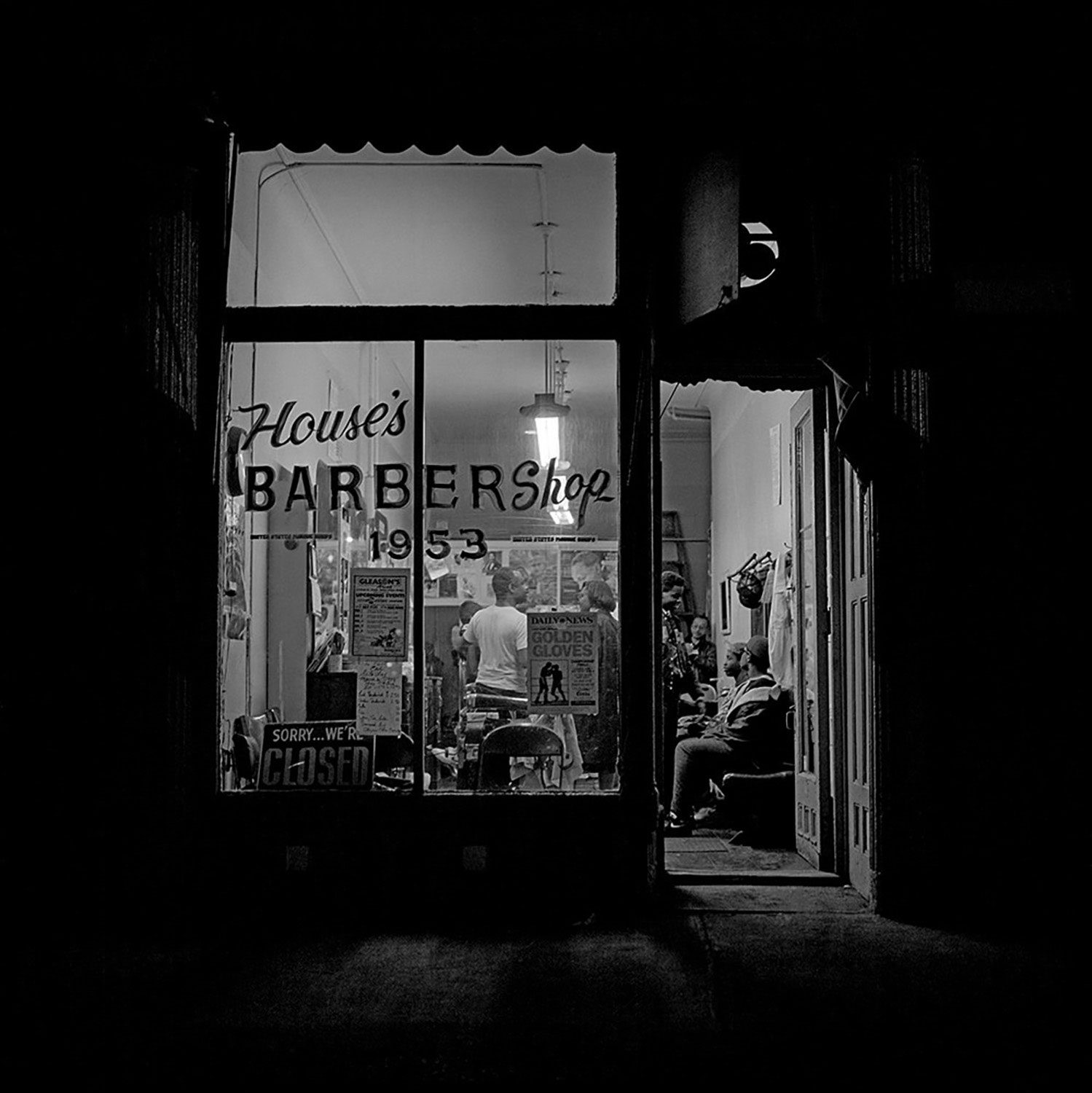Jeffrey Henson Scales’ barber shop photos keep Harlem’s heart alive
The New York photographer’s latest solo show is a time capsule of a cultural landmark where Black community thrived
House’s Barber Shop is gone now, but its spirit lives on in Jeffrey Henson Scales’ photographs. Currently on show at Claire Oliver Gallery in New York, the photographer’s latest solo exhibition, Jeffrey Henson Scales: House’s Barber Shop, is a love letter to a community space that stood for over 55 years in Harlem. A cultural landmark whose gentle thrum of clipper buzz and convivial chatter still reverberates through the images.
Scales, a New York Times photo editor and teacher of photojournalism at NYU, began photographing the shop in 1986 following a chance encounter with owner David House. “One day he noticed me photographing on the street outside,” Scales recalls to CR. “He asked if I would come in and take some photographs of his business because he was about to lose his lease.” Despite its location on Seventh Avenue, on the same block as Scales’ home, he had never stepped inside the shop with a camera.

Once welcomed in, however, Scales quickly became part of the furniture, committing to the project for the next half decade. In the early years, he shot there several days a week, gradually shifting to a few days a month as he got more into the groove. “It was a nice place to hang out and meet the people of the neighbourhood,” he says. Sometimes, Scales would even hire customers as assistants or security for commercial shoots he ran nearby.
Much like Scales’ earlier work documenting the Black Panthers, these photographs – taken between 1986 and 1992 on a Hasselblad 500C/M – are a vibrant celebration of Black identity, capturing the shop in all its tactile intimacy. Fluorescent light bounces off mirrors; straight razors glint; leather chairs hold the weight of stories and time. This was Harlem at the height of the crack epidemic, but inside House’s a very different kind of exchange was taking place – one rooted in tradition, care and intergenerational connection.
For Scales, the opportunity to work on the project long-term came with unexpected benefits. “If there is a lot of variety in the situation or subjects, the longer you work on it the more useful it can be, particularly in getting past the limitations of your own expectations,” he explains. “Some projects fall together very quickly and may become redundant if you keep going back to the well. It’s case by case.”
In this project, longevity allowed Scales to look past surface impressions and show the barbershop as a thriving ecosystem. Customers included bus drivers, postal workers, day labourers, writers, poets, artists and, on occasion, jazz legends. With Minton’s Playhouse just half a block away, it was common for the likes of Charlie Parker, Lee Morgan or Milt Jackson to be in the chair. “It’s been said that Malcolm X even frequented House’s,” notes Scales. “Which is plausible because Malcolm’s mosque was just three blocks away.”

House’s Barber Shop wasn’t just somewhere to get a haircut – it was a meeting point for men in the neighbourhood: a place where fathers brought their sons, where arguments, debates and gossip played out. Scales’ photographs preserve that rich communal experience, at once serving as a personal memoir and a broader meditation on the visual language of Black life in America.
Two decades after the shop’s closure, Harlem’s transformation is accelerating. “The role of old-school retail barbershops is absolutely changing,” says Scales. “Many of the older businesses are going away and more modern business models are moving in. Everything constantly changes in New York City.” In an era of rapid gentrification, Scales’ powerful images survive not as artefacts, but as living documents, breathing Harlem’s past into the present.
Jeffrey Henson Scales: House’s Barber Shop is at Claire Oliver Gallery, New York, until September 20; claireoliver.com















